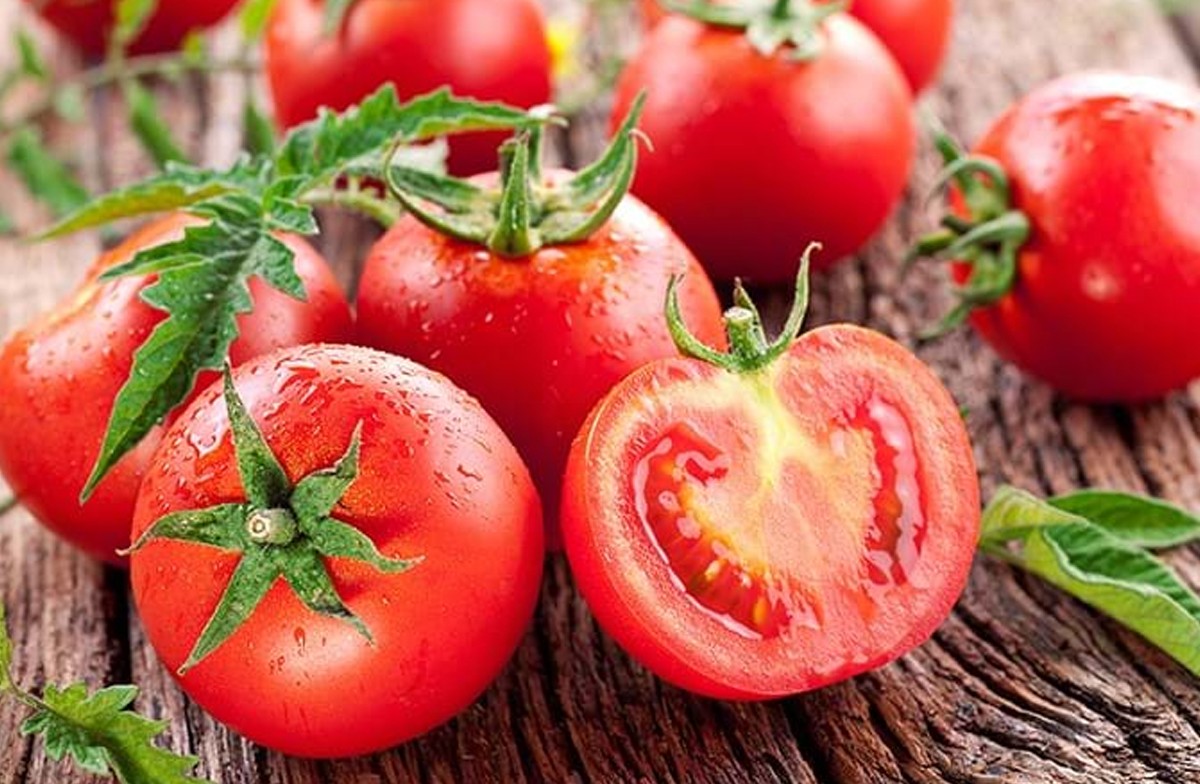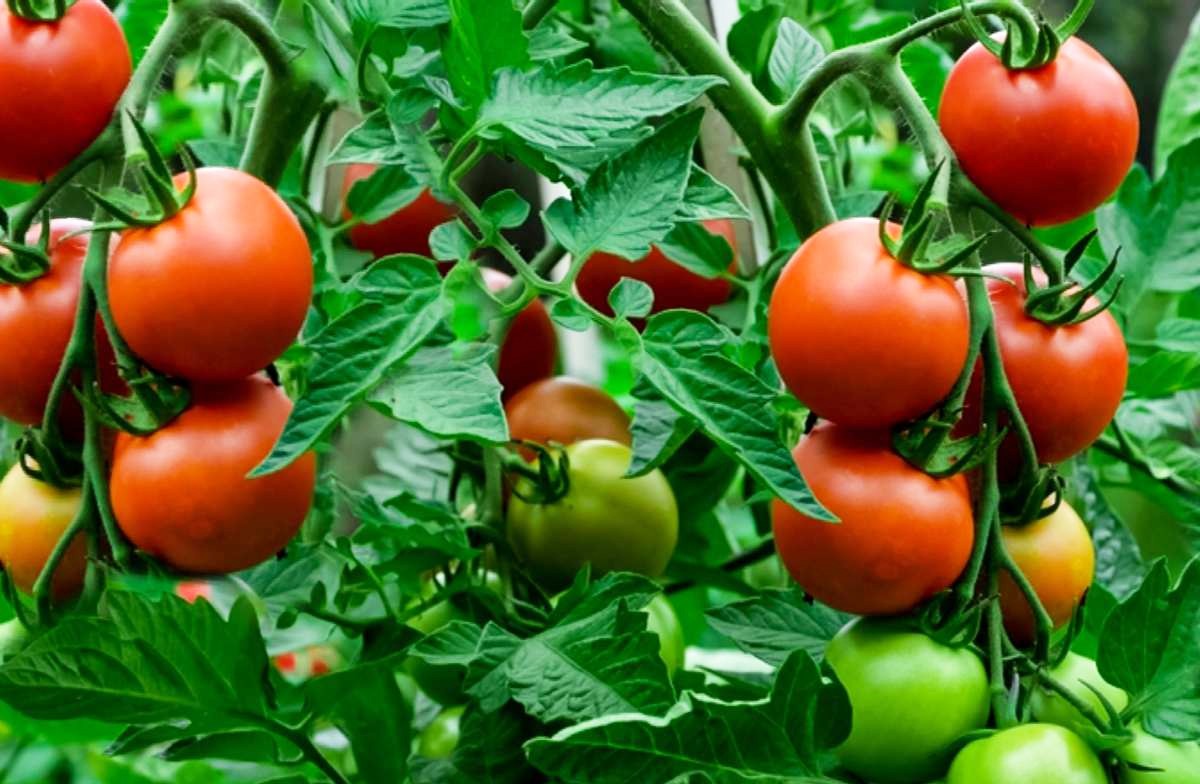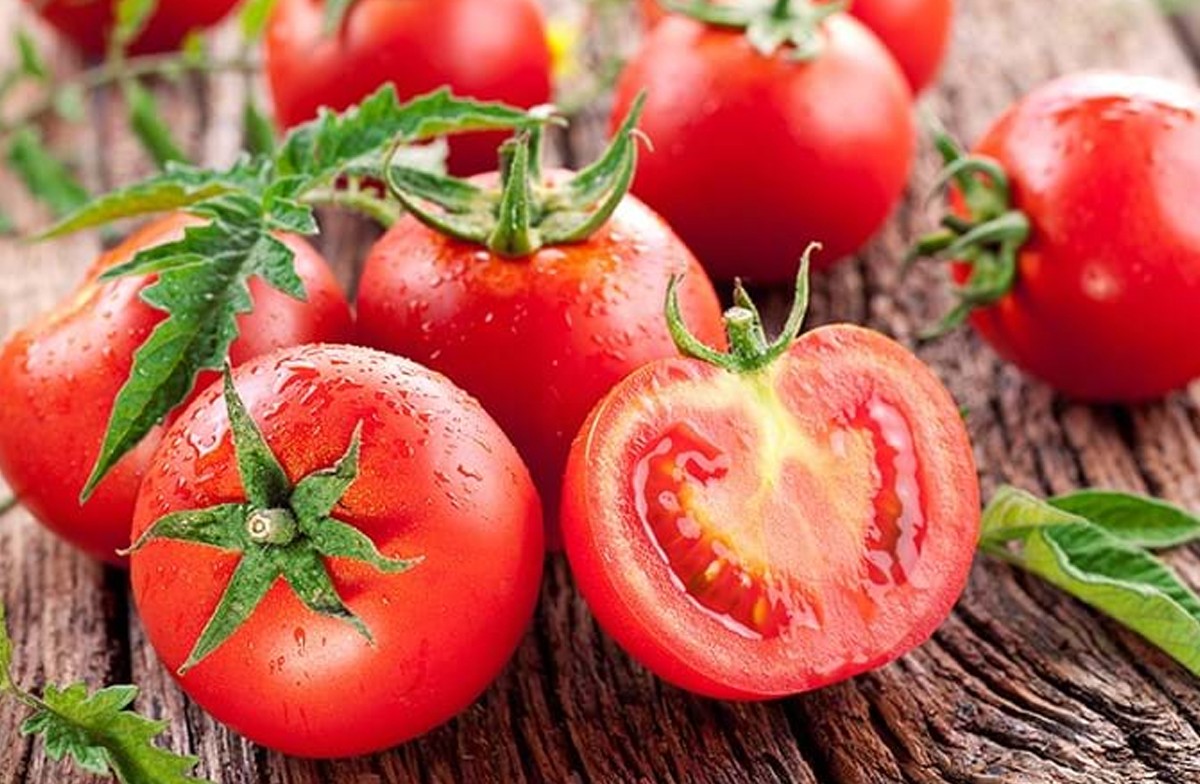Tomato
The tomato, also known as Solanum lycopersicum, is a plant species in the nightshade family. It is native to South America but is now widely cultivated in many parts of the world. The tomato plant is an annual plant, which means it completes its life cycle within a year.
The tomato can grow up to 10 feet tall, but most varieties are shorter, around 3 to 6 feet. The plant has green leaves that are hairy and slightly sticky to the touch. The flowers of the tomato plant are small and yellow, and they grow in clusters.
Tomatoes are usually grown from seeds, which are started indoors and then transplanted to the garden or container once the plants have grown to a suitable size. The tomato plant requires full sun and well-draining soil that is rich in organic matter. They also require regular watering and fertilization to produce healthy and flavorful fruits.
How to plant tomato
Growing tomatoes can be a fun and rewarding experience. Here are some general steps to plant tomatoes:
- Choose the right location: Tomatoes need at least six hours of sunlight each day, so choose a spot in your garden that gets plenty of sun. The soil should be well-draining and nutrient-rich.
- Prepare the soil: Loosen the soil to a depth of about 6 inches and mix in organic matter such as compost or aged manure. This will help to improve the soil's fertility and drainage.
- Plant the tomatoes: Dig a hole for each tomato plant that is deep enough to accommodate the root ball. Remove the plant from its container and gently loosen any tangled roots. Place the plant in the hole, making sure the top of the root ball is level with the soil surface. Fill in the hole with soil and press down gently.
- Water the plants: Give each plant a good watering immediately after planting to help settle the soil around the roots. Then water regularly to keep the soil consistently moist but not waterlogged.
- Add support: Tomato plants benefit from some form of support to help them grow upright. You can use stakes or cages to support the plants as they grow.
- Mulch the soil: Cover the soil around the tomato plants with a layer of organic mulch such as straw or shredded leaves. This will help to retain moisture, suppress weeds, and regulate soil temperature.
- Maintain the plants: As the tomato plants grow, keep an eye out for any signs of pests or diseases. Regularly prune any suckers (small branches that grow between the main stem and the leaves) to help focus the plant's energy on producing fruit.
- Harvest the tomatoes: Tomatoes are ready to be harvested when they are fully ripe and have reached their desired size and color. Simply twist or cut the tomato from the vine and enjoy!
In natural health, tomatoes are considered a cooling food that has a sweet and sour taste. They are believed to have a nourishing effect on the stomach and liver, and can help promote the production of body fluids and relieve thirst.
Tomatoes are also considered to have a cooling and detoxifying effect on the body, which can help alleviate conditions such as fever, inflammation, and skin rashes. They are also believed to have a cleansing effect on the digestive system, helping to remove toxins and promote bowel regularity.
In natural health, tomatoes are often used in combination with other herbs and foods to treat a variety of health conditions, including indigestion, constipation, poor appetite, and hypertension. They are also sometimes used to help promote weight loss and improve skin health.
Tomato nutritional benefits
- Vitamins and Minerals: Tomatoes are a good source of vitamins C, K, and A, as well as potassium and folate.
- Antioxidants: Tomatoes contain various antioxidants, including lycopene, beta-carotene, and vitamin C, which can help protect the body from damage caused by free radicals.
- Heart Health: Studies have suggested that consuming tomatoes may help reduce the risk of heart disease by lowering blood pressure and cholesterol levels.
- Cancer Prevention: The high antioxidant content of tomatoes, especially lycopene, has been linked to a lower risk of certain types of cancer, including prostate, breast, lung, and stomach cancer.
- Eye Health: The vitamin A and lycopene in tomatoes may help improve eye health and reduce the risk of age-related macular degeneration.
- Skin Health: The high vitamin C content of tomatoes can help promote healthy skin by boosting collagen production.
Tomato pharmacology
- Antioxidant: Tomatoes are a rich source of antioxidants, such as lycopene, vitamin C, and beta-carotene. These antioxidants can help protect the body from damage caused by free radicals, which can contribute to various health conditions, including cancer, heart disease, and aging.
- Anti-inflammatory: Tomatoes contain compounds that have anti-inflammatory properties, such as lycopene and flavonoids. These compounds can help reduce inflammation in the body, which may help prevent and treat conditions such as arthritis, asthma, and inflammatory bowel disease.
- Antimicrobial: Tomatoes contain compounds that have antimicrobial properties, such as lycopene and coumaric acid. These compounds may help prevent the growth of bacteria, viruses, and fungi, which can cause infections.
- Cardiovascular: Tomatoes contain compounds that may help improve cardiovascular health, such as lycopene and potassium. These compounds may help lower blood pressure and cholesterol levels, which can reduce the risk of heart disease.
- Cancer prevention: Tomatoes contain compounds that have been shown to have anti-cancer properties, such as lycopene and beta-carotene. These compounds may help prevent the growth and spread of cancer cells.
Overall, the pharmacological properties of tomatoes suggest that they may have a variety of potential health benefits. However, more research is needed to fully understand these properties and how they can be used in the prevention and treatment of various health conditions.
Who should avoid tomato in natural health
In natural health, tomatoes are generally considered safe for consumption and can be beneficial for most people. However, there are some individuals who may need to limit or avoid tomatoes based on their specific health conditions or natural health diagnosis. Here are some examples:
- Spleen Qi deficiency: In natural health, the spleen is responsible for transforming food into energy and nourishment for the body. If the spleen is weakened, it may not be able to properly digest and assimilate food, leading to symptoms such as bloating, diarrhea, and fatigue. In this case, consuming too many raw or cold foods, including tomatoes, may exacerbate the spleen deficiency and should be limited.
- Dampness and phlegm: In natural health, dampness and phlegm are considered pathological conditions that can lead to symptoms such as congestion, coughing, and mucus production. Foods that are considered damp or phlegm-producing, such as dairy, sugar, and fried foods, should be limited or avoided in these cases. Tomatoes are not necessarily considered damp or phlegm-producing, but some individuals may find that they exacerbate their symptoms.
- Allergies: Some individuals may be allergic to tomatoes or other nightshade vegetables, which can cause symptoms such as hives, swelling, and difficulty breathing. In this case, tomatoes should be avoided.
Who should eat tomato
In natural health, tomatoes are generally considered to have a neutral nature and a sweet and sour taste. They are believed to be beneficial for most people when consumed in moderation as part of a balanced diet. However, here are some examples of individuals who may benefit from eating tomatoes based on their natural health diagnosis:
- Blood deficiency: In natural health, blood deficiency is a condition characterized by a lack of nourishment and circulation of blood. Foods that nourish and tonify the blood, such as tomatoes, can be beneficial in this case.
- Heat and inflammation: In natural health, heat and inflammation are considered pathological conditions that can cause symptoms such as redness, swelling, and pain. Tomatoes are believed to have cooling and anti-inflammatory properties, making them a good food choice for individuals with these symptoms.
- Digestive disorders: In natural health, the spleen and stomach are responsible for the digestion and assimilation of food. Foods that are easy to digest and promote healthy digestion, such as tomatoes, can be beneficial in cases of digestive disorders.
In Person With Heshoutang Natural Health Members
With Heshoutang Natural Health Online Members
Fill Out the Questionnaire by yourself
When you subscribe to the blog, we will send you an e-mail when there are new updates on the site so you wouldn't miss them.

















Comments